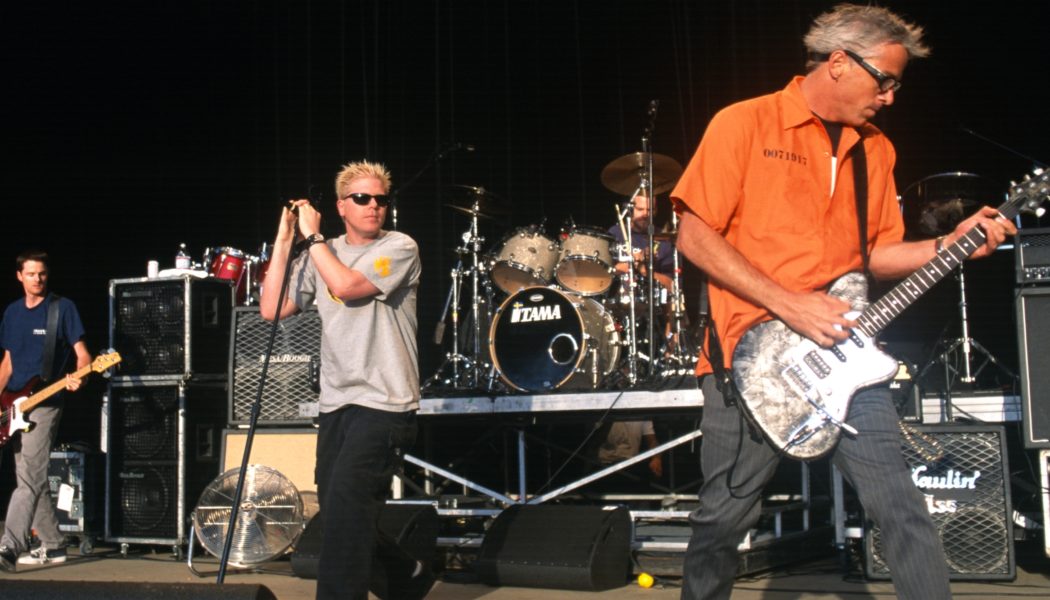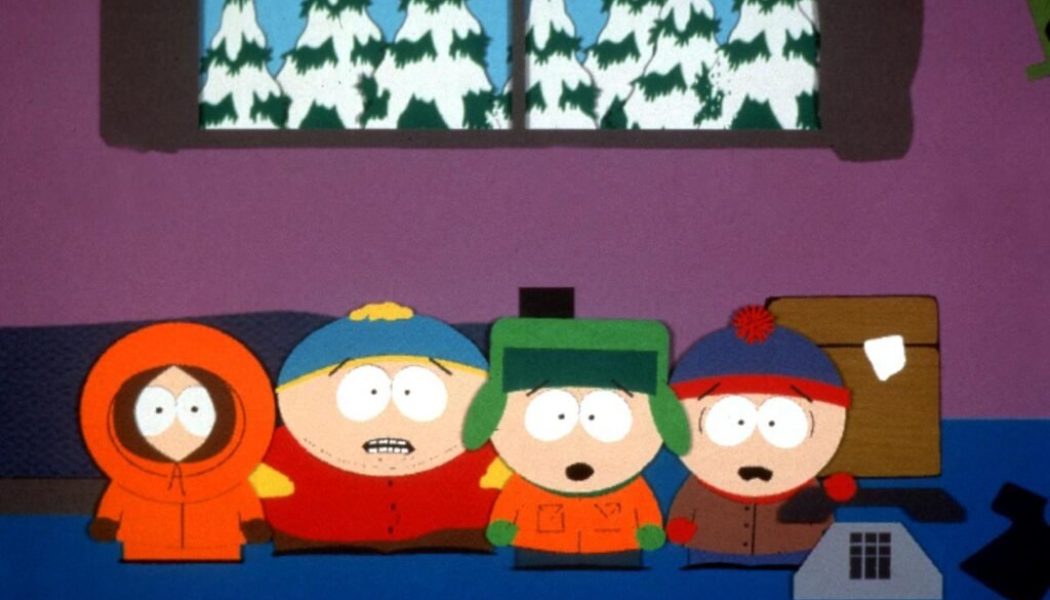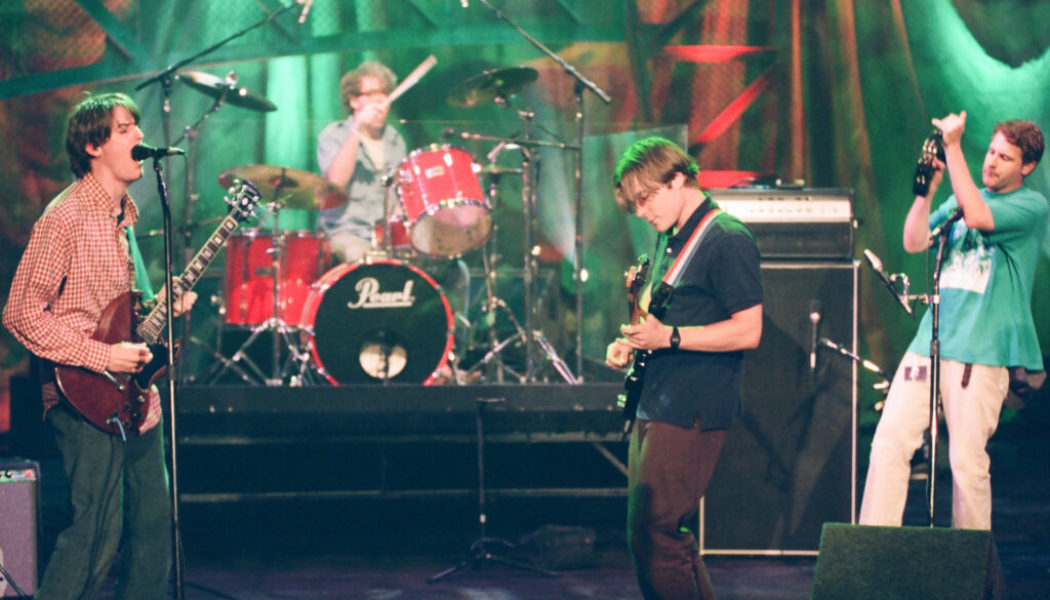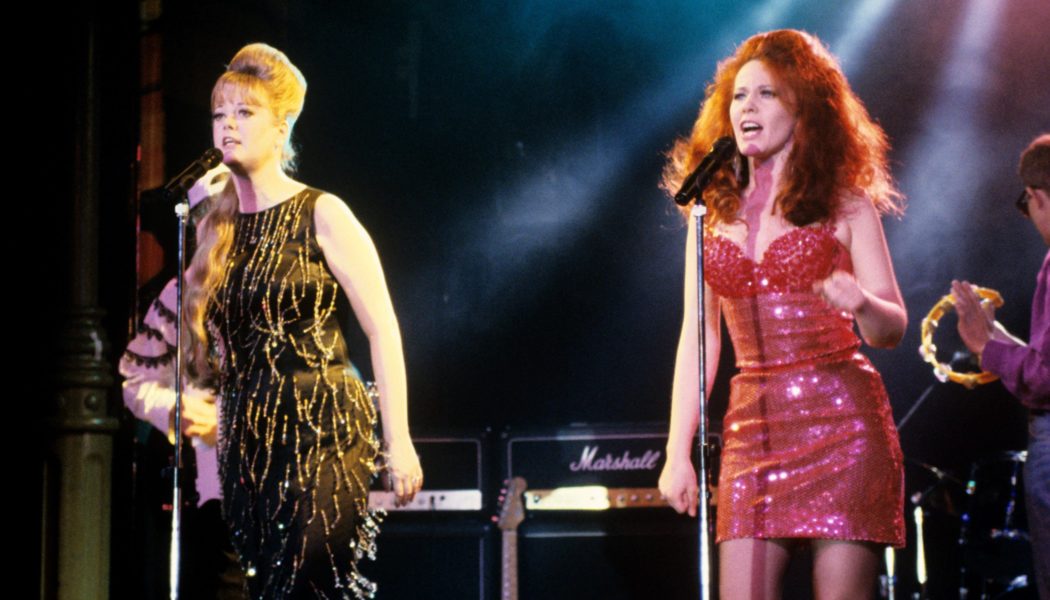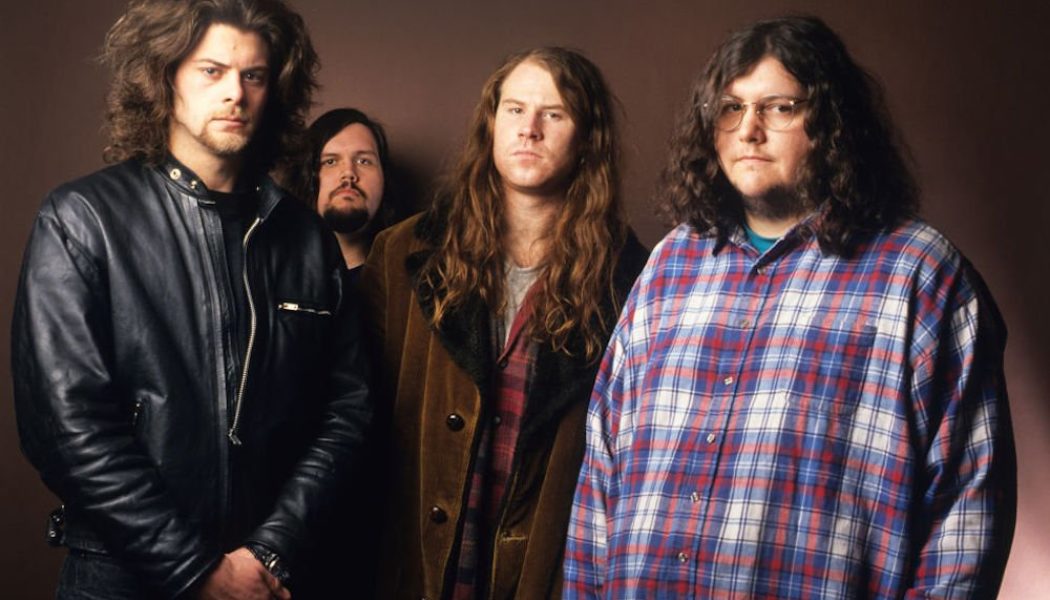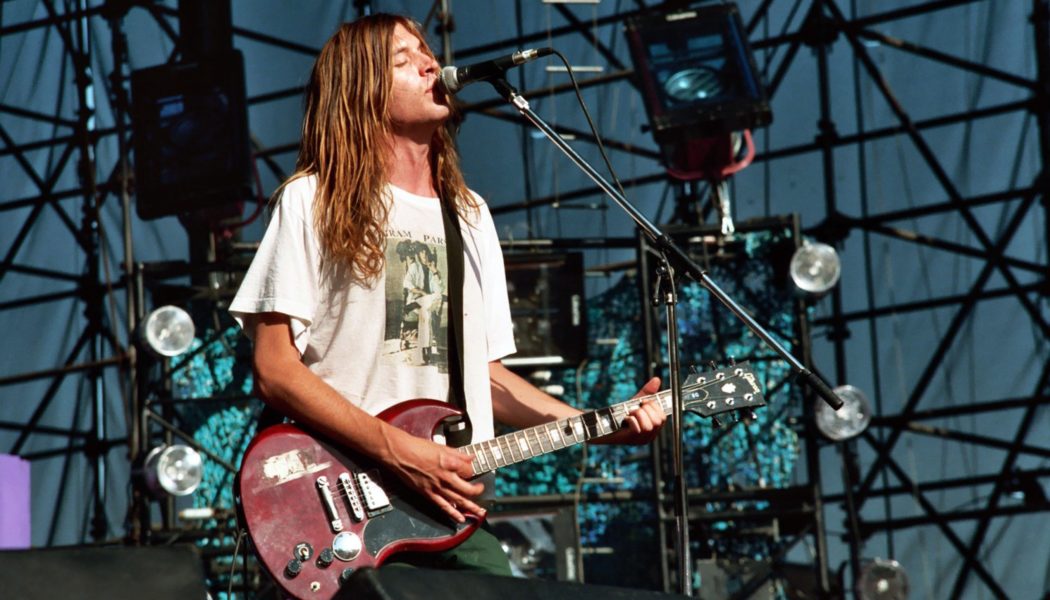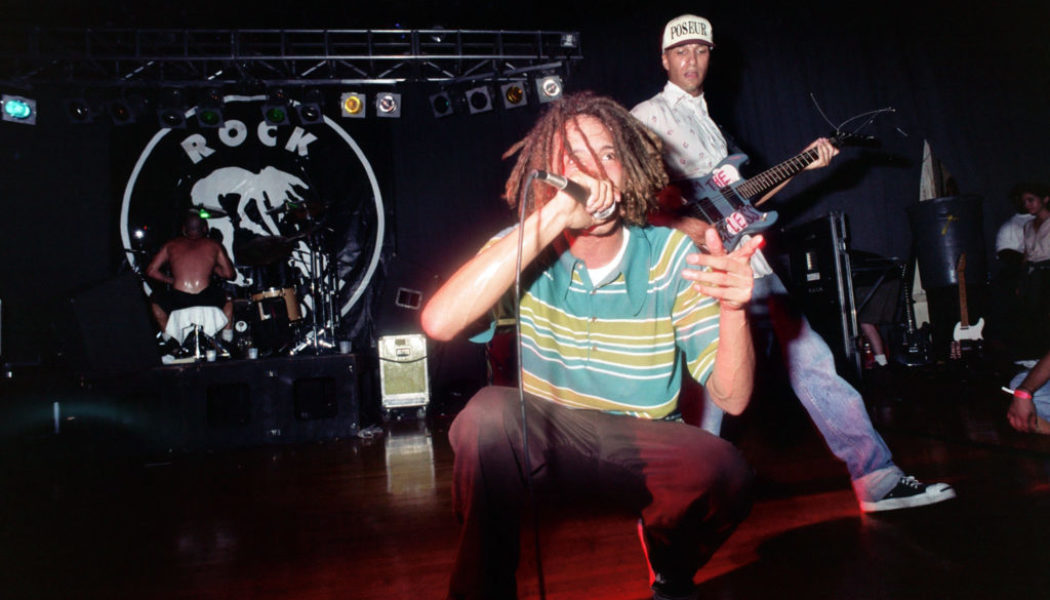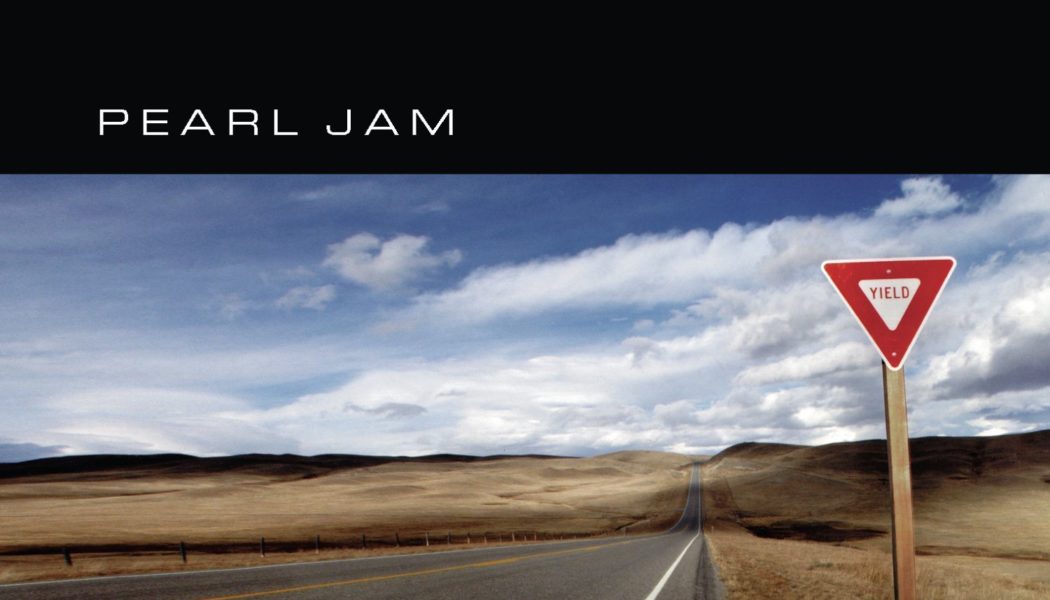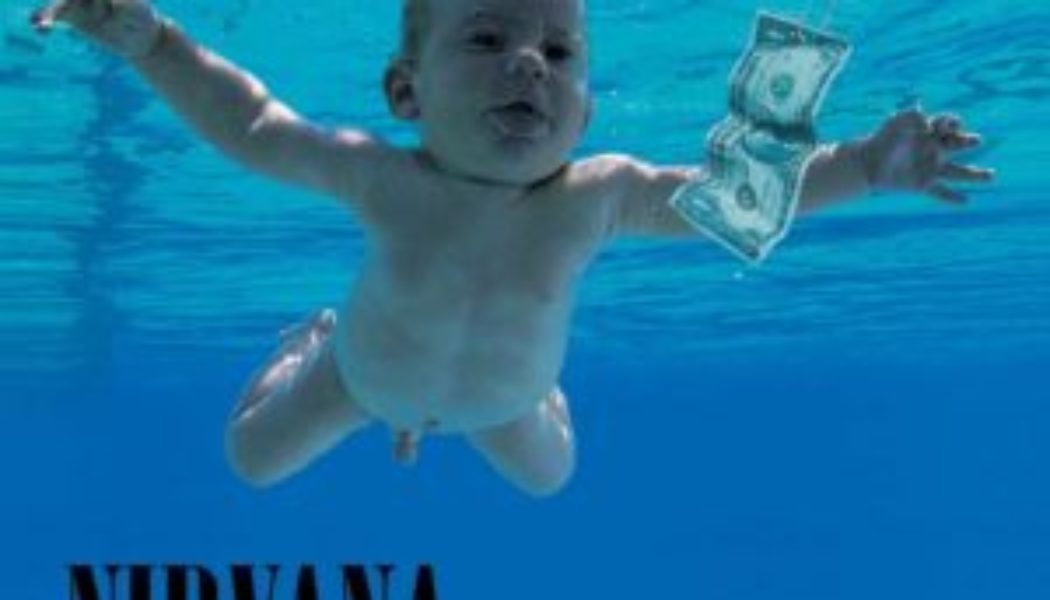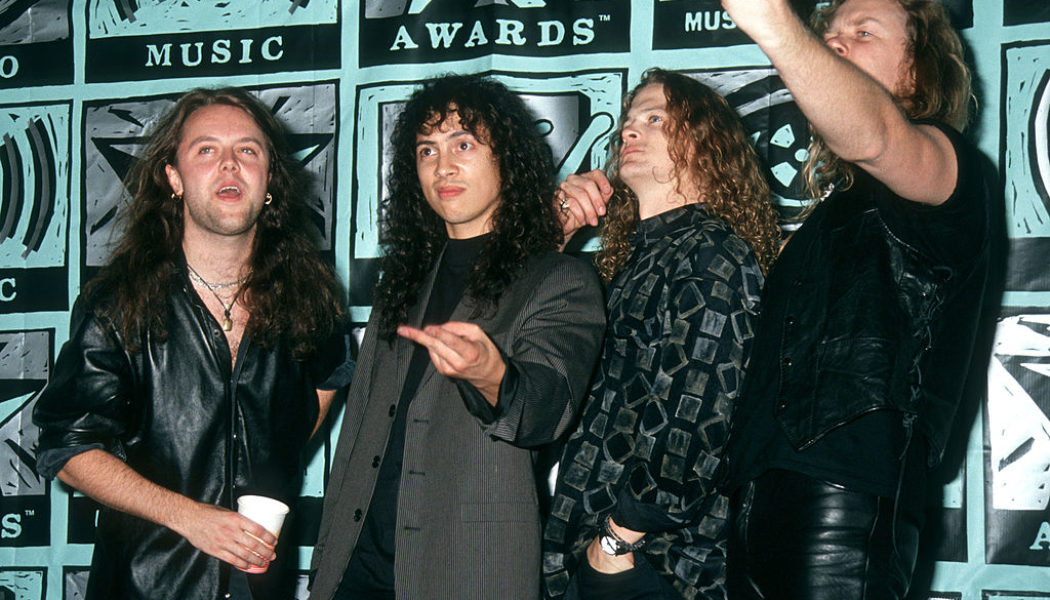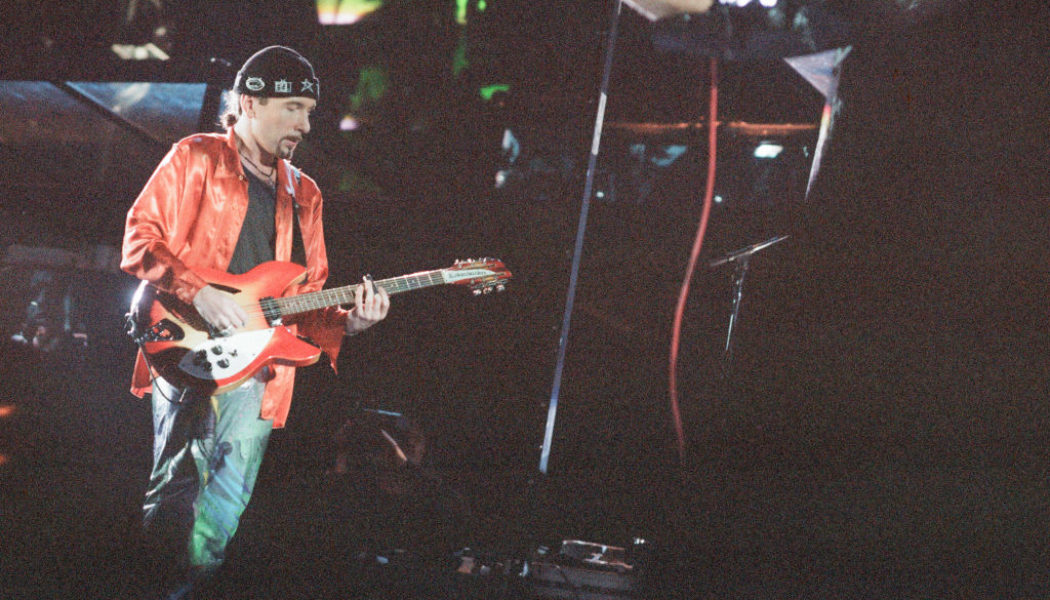1990s
White Punks on Dope: Our 1999 The Offspring Cover Story
He may be dumb, but he’s not a dweeb. Bryan “Dexter” Holland strides manfully to the edge of a New York City stage, and—holding two cans of beer—launches himself onto a sea of hands. His goal: to carry said beverages back over the thirsty-looking crowd and deliver them to the band’s sound-man some 20 yards away. “I’d done it before,” the Offspring‘s 32-year-old singer says later. “But this was going to be the record for distance.” Barely ten feet into the crowd, the horizontal Holland loses the beers—seized and guzzled by fans. Then he loses his shoes. Then his socks. Then he simply disappears, leaving his bespectacled aide-de-camp, guitarist Kevin “Noodles” Wasserman, squinting out from the stage. After a good five minutes—”It was definitely the record for time,” Noodles reports—Holland r...
Welcome to South Park, Fat-Ass: Our 1998 South Park Cover Story
This article originally appeared in the March 1998 issue of SPIN. It is being republished in honor of the 25th anniversary of South Park. Here’s how it works in the post-Simpsons era. The tremors start at coffee shops, movie queues, dorm rooms: young people talking in bizarre pinched voices. Goateed cashiers spouting off-color catchphrases. Strange little icons on T-shirts and screen savers. Then, the Web sites spring up. The upstart network flourishes. The single is released. The movie is announced. Suddenly, before you know it, we’re up to our bungholes in ’90s cartoon Zeitgeist. With the unstoppable force of a dead-Chris Farley joke, Comedy Central’s sick, crudely animated half-hour show South Park—featuring the adventures of four gimlet-eyed, foul-mouthed third-graders—has become ...
Big Slack Attack: Our 1994 Pavement Interview
This interview originally appeared in the April 1994 issue of SPIN. I’ve been coming up with lots of theories lately, for no special reason except maybe to kill time between episodes of the Larry Sanders Show. Here’s one: When I first heard Pavement‘s new album Crooked Rain, Crooked Rain, I was convinced it was secretly an answer record to R.E. M.’s Reckoning (“Range Life” was “(Don’t Go Back To) Rockville,” “Cut Your Hair” was “Pretty Persuasion,” umm. . .). This isn’t as stupid an idea as you might think: Pavement contributed a song to the recent AIDS-benefit compilation No Alternative called “Unseen Power of the Picket Fence,” a paean to the Athens, Georgia, combo, and specifically to Reckoning (from which we learn that “Time After Time (annElise)” was singer-guitarist Stephen Malkmus’s...
Beehives & Ballyhoo: Our 1990 The B-52’s Feature
A version of this article originally appeared in the March 1990 issue of SPIN. In honor of The B-52’s announcing their farewell tour, we’re republishing it here. December 29, 10:15 pm. The stage lights are all the colors in the B-52’s rainbow: housedress orange, linoleum yellow, jellybean green, oxygen blue, posey purple. Three microphones stand at the lip of the stage, in front of which the dance floor of San Francisco’s Civic Auditorium throbs with fans screaming and stomping for an encore. The crowd is a mixture of old-fashioned B-52’s fans—girls in 1950s dresses and beehives, shy-looking guys in polka-dot shirts buttoned up to the top, the occasional lobster brooch or pickle handbag—plus new fans picked up since the release of album Cosmic Thing, and a few skinheads and thugs...
Nearly Lost: Our 1993 Screaming Trees Feature
This article originally appeared in the March 1993 issue of SPIN. It is being republished in memory of Mark Lanegan, who died earlier this year. Stepping onto the Screaming Trees‘ tour bus, singer Mark Lanegan has the half-haggard look of a man somewhere in the middle of a long tour. Freshly washed long hair obscuring his craggy, classic rock features, he communicates with bandmates and crew in monosyllables. I might, under normal circumstances, be put off by his terse mien, but these are hardly normal circumstances. I’m still in awe of the Trees’ totally plush bus, which, according to road manager Rod Doak, saw recent service with U2. Bunks big enough to easily berth the largish Conner brothers (that’s Van “Bass” Conner and Gary Lee “Guitar” Conner), tasteful pastel decor, micro...
Just Like Evan: Our 1993 Lemonheads Cover Story
This article originally appeared in the April 1993 issue of SPIN. In honor of The Lemonheads’ It’s a Shame About Ray turning 30 and the band’s set at our SXSW event, we’ve republished it here. IT’S FAST APPROACHING 5:00 A.M. IN THE WANE OF A BREEZY AUSTRALIAN SUMMER NIGHT, and Evan Dando is sitting on the ninth-floor balcony of my Sydney hotel room obliging a record company publicist in New York with a phone interview. Bored for the first time during the course of this long evening, I dig an old interview tape from my bag and stick it into my cassette player. “Hey, talk to Mark from SPIN a second,” Dando tells the caller, as he becomes interested in the tape. The singer-songwriter-guitarist presses the Walkman to his ear, as the Atlantic rep, who is calling from about 10,000 miles awa...
Revolution Rock: Our 1993 Rage Against the Machine Feature
This article originally appeared in the November 1993 issue of SPIN. A sea of upraised middle fingers are pumping rhythmically into the enervating Southern California heat and smog. “Fuck you, I won’t do what you tell me,” the audience shouts over and over, a few mindlessly mimicking the mantra, but most passionately chanting singer Zack de la Rocha’s invective rant from “Killing in the Name.” In the massive mosh pit objects sail through the air every few seconds, as Doc Marten-clad trendies are passed hand-over-hand above the tattoos and sunburned shoulders of the Lollapalooza nation. Onstage, Rage Against the Machine‘s insistent, hard-core rock-rap amalgamation is nearly overmatched by its rad political clamor, spewed forth both in the songs and in the longish pauses between them. During...
Classic Reviews: Pearl Jam, Yield
This article originally appeared in the March 1998 issue of SPIN. Angels are God’s designated hitters. They’re represented in Judaism, Christianity, and Islam, among many other religions; they pretty much show up anyplace people put out a punch bowl and a turntable. Messengers of supreme beings, keepers of the gate, angels are the ones who feel the full weight of responsibility. “Just call me an angel,” Eddie Vedder seems to groan over the fadeout of a new song on Pearl Jam‘s fifth album. And he’s got plenty of company. Angels are all over Yield: “Given to Fly” is about a seraph who breaks free; there are references to angels in the dirt; and “Do the Evolution” even features a choir singing hallelujahs. Angels have become Vedder’s nervy way of talking about himself these days—he’s a m...
U2 on Tour: Our 1992 Cover Story
This article originally appeared in the July 1992 issue of SPIN. In honor of Achtung Baby turning 30, we’re republishing it here. “What you can never get in your book is the utter, total boredom of being in a band [on tour].” —John Lydon, quoted in Jon Savage’s England’s Dreaming April 9, 1992: Rolling through the sun-scrubbed Arizona landscape on the way to Tucson. Last night was, I think, Austin. Axl Rose was at the show, I guess he wanted to hang out with rock stars who are even shorter than him. Strange that the desert really does look like a Roadrunner cartoon; except in real life, the rock-infested hills are less friendly, looming like scars carved from the unrealistically blue sky. Antitank fighter planes swoop low over the cactus, looking, we hope, for someone else. ...
Really the Blues: Our 1993 PJ Harvey Feature
This article originally appeared in the August 1993 issue of SPIN. Polly Harvey is standing in the rain, in the middle of a generic English small-town shopping street. The 23-year-old singer is wearing a plush fake leopard-skin coat, her usual Olive Oyl bun let loose into barely restrained curly waves. She is bone-tired, fed up with interviews and photo sessions, sick of being the latest fixation in the music press’s neurotic search for new blood. Although she leads me to a local tea house, Harvey looks like she’d rather be getting a tetanus shot. I’m deeply flattered. Harvey and her band, PJ Harvey, released one of the most talked-about debuts of last year, Dry, and have just issued the ballyhooed follow-up, Rid of Me. Critics have wet themselves over her striking image and her...
